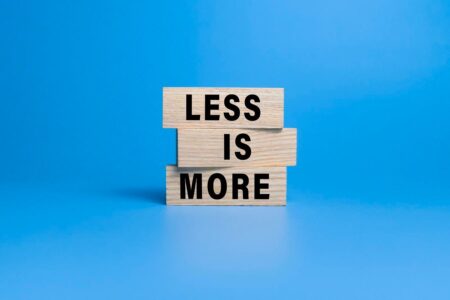Nuala Walsh is MindEquity CEO, non-exec director, behavioral scientist, adjunct professor & author of TUNE IN: How to Make Smart Decisions
The most underestimated risk in business isn’t economic, technological or climate-related. It’s human decision risk triggered by our tendency to tune out and disregard who and what really matters. Many people don’t consider human risk as a factor, yet it’s rising. However, decision risk underpins everything we do and deserves more attention than it currently receives.
A wealth of research shows that up to 80% of accidents and tragedies can be attributed to human error. In business, approximately 65% of new ventures fail within 10 years. Medical errors are the third leading cause of death in the U.S., highlighting the importance of recognizing and addressing this early.
Seven Reasons It’s Harder To Get Decisions Right
A major determinant of decision-making is the context in which we decide. Get a decision wrong and organizations can suffer a reputation hit, loss of revenue and damaged relationships. According to McKinsey, an S&P 500 company’s lifespan decreased from 90 years in the 1930s to 14 years in 2010. Here are seven factors that explain why decision-making is getting harder:
1. Tuned-Out Thinking
Everyone gets some decisions wrong, but in today’s era of distraction and data overload, leaders are prone to hear less and misjudge more. In a noisy world, leaders don’t always process or receive timely decision inputs, and risk rushing to judgment.
We believe we’re tuned into the right sources, but susceptibility to error can rise under pressure, crisis or uncertainty. Tuning out makes us more vulnerable to risks. This can manifest in seemingly harmless ways, such as taking messages at face value, not second-guessing or encoding rather than decoding information. It explains why boards still fail and individuals get scammed.
2. The Inattention Economy
Today’s fast-paced lifestyle and performance pressure can accelerate short-termism and inattention to detail. It’s easy to misinterpret what we think was said in meetings rather than reinterpret what was actually said. Inattention can amplify the probability of poor decisions. For example, the 2008 financial crisis can be partly attributed to short-termism combined with inattention to market signals through a lack of due diligence.
3. An Age Of Distraction
The information superhighway encourages the belief that more information leads to better decisions. However, too much data not only causes analysis paralysis but provides false comfort. More data can increase confidence but not accuracy of predictions. Too much data can lead to confusion and conflicting interpretations.
4. Visual Dominance
What we see can dominate and skew our interpretation of a situation or individual. Think Instagram or speed dating. Studies show candidates deemed more attractive are often given preferential treatment at work. With this skew, we often don’t consider what we hear. This can lead to stereotyping, whether in the context of hiring, refereeing, sentencing or awarding loans.
5. Polarized Mindsets
Binary classifications are embedded in many systems and structures. Consider how marketers segment customers or how we rate colleagues as introverts or extroverts. We narrow perspectives when thinking this way. In politics, polarization can lead to decisions along party lines rather than policy merit.
6. Explosion Of Artificial Intelligence
The rise of AI has sparked a wave of optimism, sometimes unrealistically. While some fear it, others deem it a panacea, leading to over-reliance on its application without grasping its limitations. I’ve noticed smart leaders re-evaluate the situation and remain nuanced.
7. Rising Expectations
Decision-making is not always taught, yet excellence is assumed in corridors of power. When you get a new job or a promotion, you may only get around 100 days before your boss expects solid results. Some don’t make it. Nowadays, CEOs face additional pressure from customer expectations around diversity and social justice. Failure to deliver leads to instant cancellation.
As I’ve written about in my book, TUNE IN: How to Make Smarter Decisions in a Noisy World, understanding hidden influences and ten common judgment traps can give you a judgment superpower that few others possess.
How Leaders Can Tune In To Better Judgment
Making decisions is stressful when under time, social or financial pressure. In my experience, the best leaders adopt four simple methods to improve decision-making. These can help avoid errors, ensuring both survival and success.
1. Be Exploratory
In counterfactual thinking, leaders can simulate alternative outcomes to imagine if different choices had been made. This technique involves “what if” situations to consider how sales projections, campaigns or initiatives might have turned out. NASA uses similar techniques to prepare for missions. It allows teams to adapt strategies and make informed choices.
2. Be Reflective
Building a culture where reflection is valued allows teams to consider consequences before acting. Yet this is tough. In a study, 47% of respondents claimed “deep thinking” had become a thing of the past. Post-mortems, like the Army’s after-action reviews, help us learn from past decisions and improve future processes. When you get it wrong, apologize effectively.
3. Be Intentional
Success relies on noticing what’s said and what’s not before forming concrete conclusions. This is how journalists interrogate sources and investigators crack cases. Don’t rely on experts without challenging what you hear.
4. Be Disciplined
Leaders can implement a series of decision protocols. For instance, the FDA’s drug approval process involves multiple stages. Yours may include defining criteria, involving stakeholders and setting timeframes. You might ask, “What do others know that I don’t?”
Many leaders agonize in silence rather than risk criticism or display weakness. As I’ve discussed in my TEDx talk, there are a range of science-based techniques you can implement for overcoming indecision. By being more exploratory, reflective, intentional and disciplined, you can navigate modern complexities.
With a commitment to slowing down and selectively tuning in to the voices that matter, you can make judgments easier and help ensure success in a noisy world.
Forbes Business Council is the foremost growth and networking organization for business owners and leaders. Do I qualify?
Read the full article here














